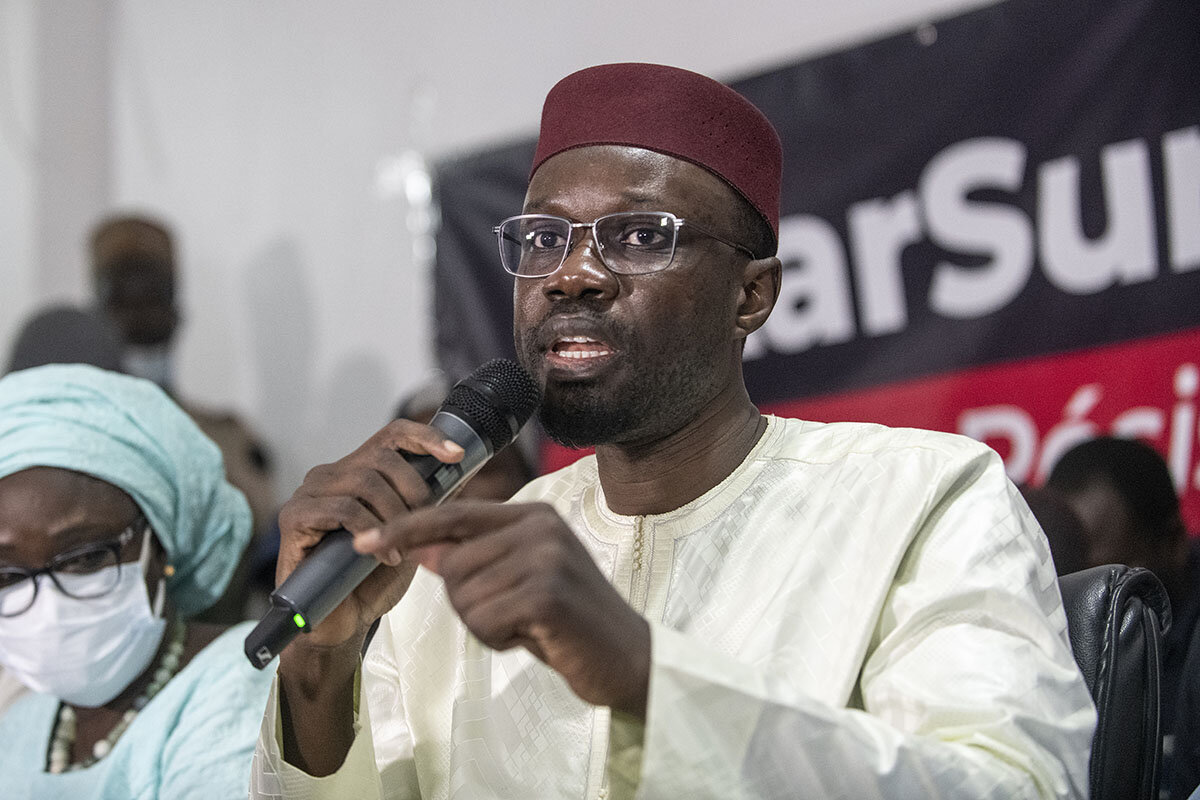Senegal’s rape law changed last year. Have attitudes?
Loading...
| Johannesburg
When Salimata Faye watched young Senegalese pour into the streets of the country’s capital Dakar last month to protest the government, she was pulled in two directions.
On the one hand, the protesters’ anger was hers, too. She was fed up with being led by a government of men twice her age, who seemed tone-deaf to the hardships of being young and unemployed during a pandemic. When a popular politician named Ousmane Sonko was arrested in early March, those deep-seated frustrations burst into protest. Like others, she worried the charge had been made up to silence the opposition.
On the other hand, Mr. Sonko had been accused of rape, and Ms. Faye watched in horror as the woman who accused him, a young masseuse named Adji Sarr, was roundly dismissed as a liar. She was nothing but an opportunist, Mr. Sonko’s supporters said, who’d only made the charge to take a powerful man down.
That tension put Ms. Faye, who works as a tutor, and other Senegalese women in a bind. Call for due process, and they risked being seen as standing in the way of progress for young Senegalese critical of President Macky Sall. But ignore the accusations, and they were sending an equally powerful message to victims of rape: We don’t believe you.
“Women are being asked to put aside their rights in order to fight for our democracy, as though women’s rights are somehow outside of that fight,” says Marame Gueye, an associate professor of African literatures at East Carolina University.
The protests began after Mr. Sonko was arrested on March 3 for disrupting public order en route to court for questioning over the rape accusations, which he has denied. He was charged with rape, and released.
For young Senegalese, the arrest touched a nerve: They were already facing high unemployment and heavy coronavirus restrictions, and the president had been accused twice before of arresting powerful challengers. They poured into the streets of the country’s major cities and torched dozens of businesses. Most were French-owned, symbols for what many in Senegal see as the government’s cozy relationship with its former colonizer at the expense of local businesses and local people. At least 11 people have died in the protests, according to Amnesty International, and 590 have been wounded.
Mr. Sonko’s accuser, meanwhile, became the target of widespread vitriol. His supporters questioned why Ms. Sarr had “not once … been heard calling for help or struggling” when she was allegedly attacked at her workplace; talk shows buzzed with discussion of women who use rape accusations to “get back” at men they didn’t like.
“What was especially unsettling about Adji’s case was that her alleged rapist was touted as a public hero, so loved and respected that people died chanting his name,” says Haddy Gassama, a Gambian lawyer and writer living in Washington, D.C. “It’s the age-old story of the powerful man who tells the women that no one will believe them.”
For women’s rights activists in Senegal, the conversation was especially troubling because it came on the heels of the country’s biggest legal victory for victims of sexual assault. In January 2020, after years of campaigning, the country passed a law making rape a serious offense for the first time, punishable by a minimum of 10 years in prison.
“This is a kind of test case for that law,” says Dr. Gueye, author of a recent Washington Post op-ed “In Senegal, Women’s Bodies Have Become a Political Battleground.” She adds, “It isn’t the place of the public to judge whether she’s right or not. A court will do that. But it is our responsibility to support and hear her in the meantime.”
For now, Mr. Sonko and Ms. Sarr’s case remains open. Protests have died down, though some suspect further court appearances by Mr. Sonko could reinflame them. For Ms. Faye, the tutor, that is part of the problem. Ms. Sarr has been set up by Mr. Sonko’s supporters as an enemy of democracy, instead of a citizen of it.
“To me, this shouldn’t be two separate fights,” she says. Since the protests began, she has both participated in them and called for Ms. Sarr to be given a fair hearing, and says she sees no contradiction between the two. “I want to live in Senegal where victims of sexual assault feel free to speak up, and the best kind of country for that is a democratic one that respects its citizens.”







